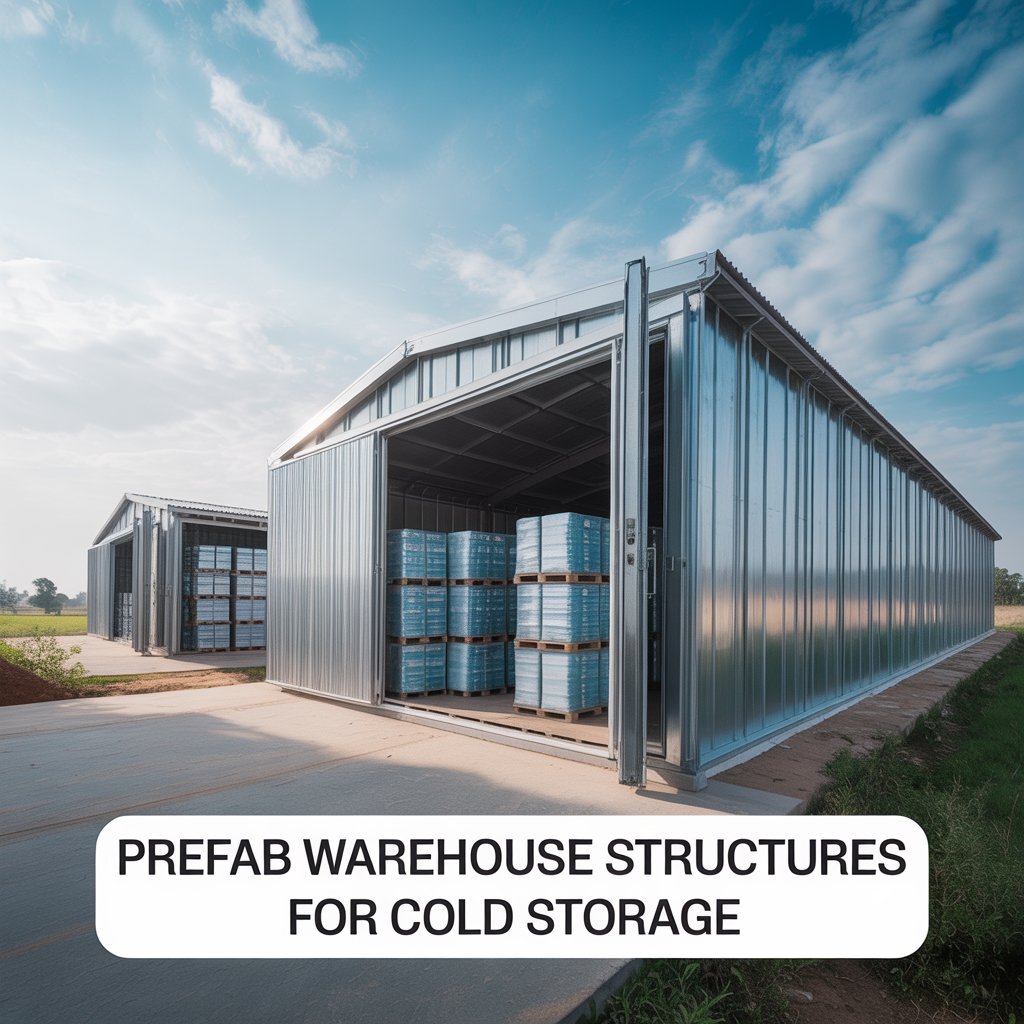Prefab Warehouse Structures for Cold Storage: A Growing Trend in India

Strong 8k brings an ultra-HD IPTV experience to your living room and your pocket.
In a country like India, where agriculture, pharmaceuticals, and food processing are rapidly evolving, the need for effective cold storage solutions has become more critical than ever. Traditional warehouses often fall short when it comes to maintaining temperature-sensitive goods. As a result, the demand for prefab warehouse structures designed specifically for cold storage has surged across the nation.
This growing trend is not just a response to logistical challenges but a strategic shift toward faster, more efficient, and scalable storage solutions. Prefabricated cold storage warehouses are revolutionizing how companies in India handle perishable and temperature-sensitive products.
Why Cold Storage Needs Are Evolving in India
India ranks among the top producers of perishable goods such as fruits, vegetables, dairy, and meat. However, inadequate cold storage infrastructure has led to significant post-harvest losses. Additionally, the booming pharmaceutical and biotechnology industries require highly controlled environments for storage and distribution.
With changing consumer habits, increased urbanization, and the growth of e-commerce, the need for robust cold chains has never been higher. Traditional brick-and-mortar warehouses often cannot meet the requirements of modern supply chains—enter prefabricated warehouse structures.
Advantages of Prefabricated Cold Storage Warehouses
One of the primary reasons businesses are turning to prefabricated solutions is the speed of construction. Unlike conventional warehouses, prefab structures can be manufactured off-site and assembled quickly, minimizing project timelines and disruptions.
Key Benefits:
- Temperature Control: Modern insulation materials and HVAC systems ensure consistent temperature regulation.
- Energy Efficiency: Many prefab cold storages are designed with energy-saving materials and technologies, which reduce long-term operating costs.
- Modularity: They can be expanded or modified easily based on business needs.
- Durability: High-quality prefab materials ensure longevity, even in harsh climates.
These benefits make prefabricated cold storage warehouses a logical choice for industries that rely on precise storage conditions.
Industries Driving the Demand
Several sectors are contributing to the increasing demand for prefab cold storage warehouses:
- Agriculture & Food Processing: To reduce waste and extend shelf life.
- Pharmaceuticals: For storing vaccines, biological samples, and temperature-sensitive medicines
- Retail & E-Commerce: Especially for grocery and frozen food delivery platforms
- Hospitality: Hotels and restaurants are also investing in smaller prefab units for bulk cold storage.
Each of these sectors has unique requirements, and prefabricated solutions offer the flexibility to tailor structures to specific operational needs.
Role of Prefabricated Warehouse Structure Manufacturers in India
As demand grows, so does the role of specialized manufacturers who understand both the technical and industry-specific requirements of cold storage solutions. Prefabricated warehouse structure manufacturers in India are rising to the challenge by offering end-to-end services—from design and engineering to installation and after-sales support.
Leading manufacturers use advanced CAD tools and thermal simulation software to ensure their designs meet safety and performance standards. Moreover, they collaborate closely with logistics companies and cold chain consultants to deliver customized solutions that align with both regulatory requirements and business goals.
Case Example: Scaling a Food Distribution Network
Consider the example of a mid-sized food distribution company based in Maharashtra. Faced with the challenge of rapidly scaling its operations across multiple cities, the company opted for prefabricated cold storage units. Within months, they had operational cold storages in five different locations—something that would have taken years with traditional construction.
The prefab structures were equipped with smart monitoring systems, energy-efficient cooling technologies, and remote access controls. The result? A 40% reduction in spoilage and a 25% increase in supply chain efficiency.
Sustainability and Green Building Trends
Another reason for the popularity of prefabricated cold storages is their potential to align with green building practices. Many manufacturers now offer eco-friendly construction materials and integrate solar panels, rainwater harvesting systems, and recyclable insulation materials into their designs.
This not only reduces carbon footprint but also appeals to companies looking to boost their ESG (Environmental, Social, and Governance) credentials.
Conclusion
Prefab warehouse structures for cold storage are no longer a niche solution—they are becoming the standard for forward-thinking businesses in India. With scalability, efficiency, and cost-effectiveness at their core, these structures are transforming how industries store and distribute temperature-sensitive goods.
For companies seeking reliable solutions, collaborating with experienced prefabricated warehouse structure manufacturers in India is a strategic step toward building a future-ready supply chain. As demand continues to rise, the synergy between innovation and necessity will drive even greater adoption of prefab cold storage across the country.
Note: IndiBlogHub features both user-submitted and editorial content. We do not verify third-party contributions. Read our Disclaimer and Privacy Policyfor details.



